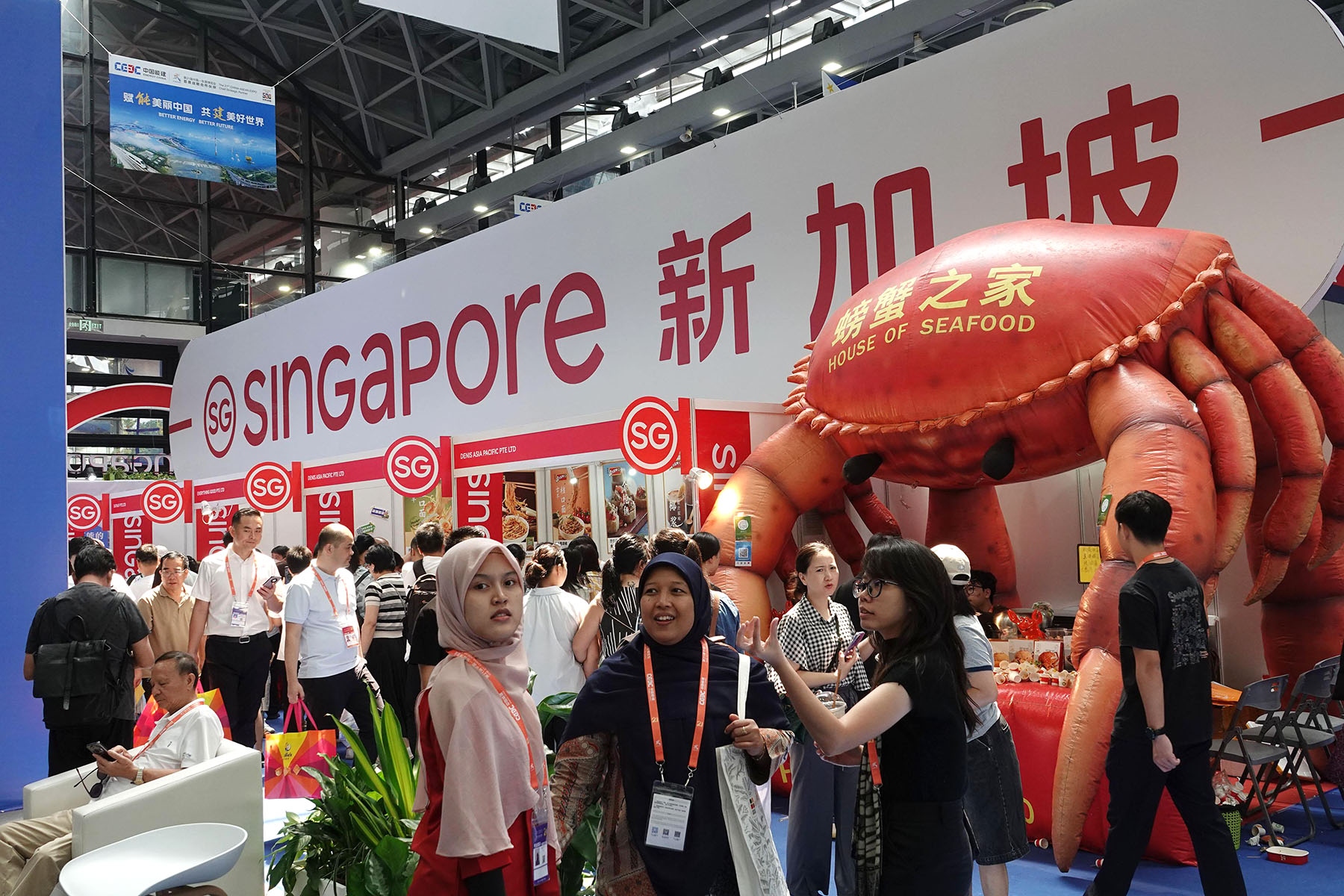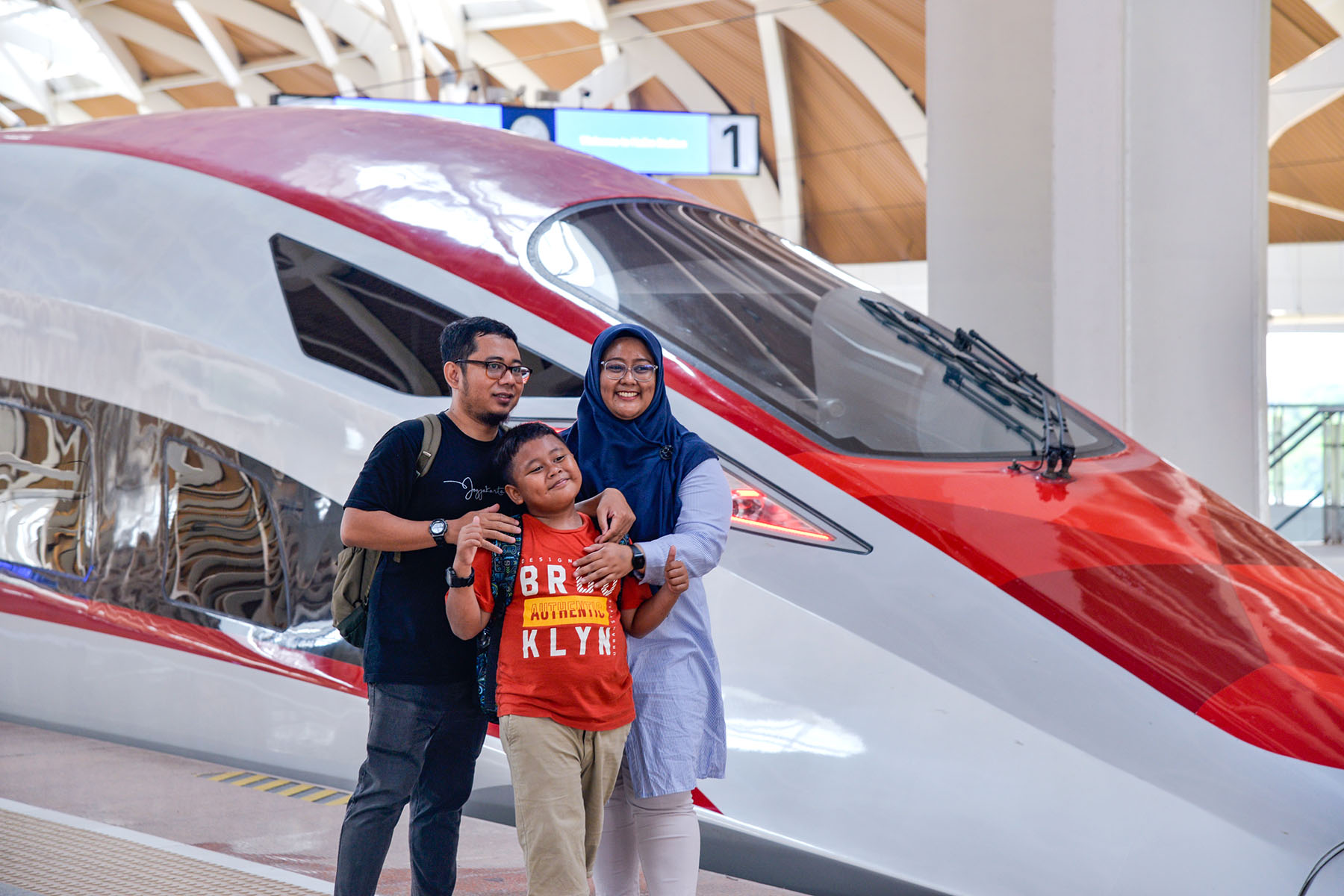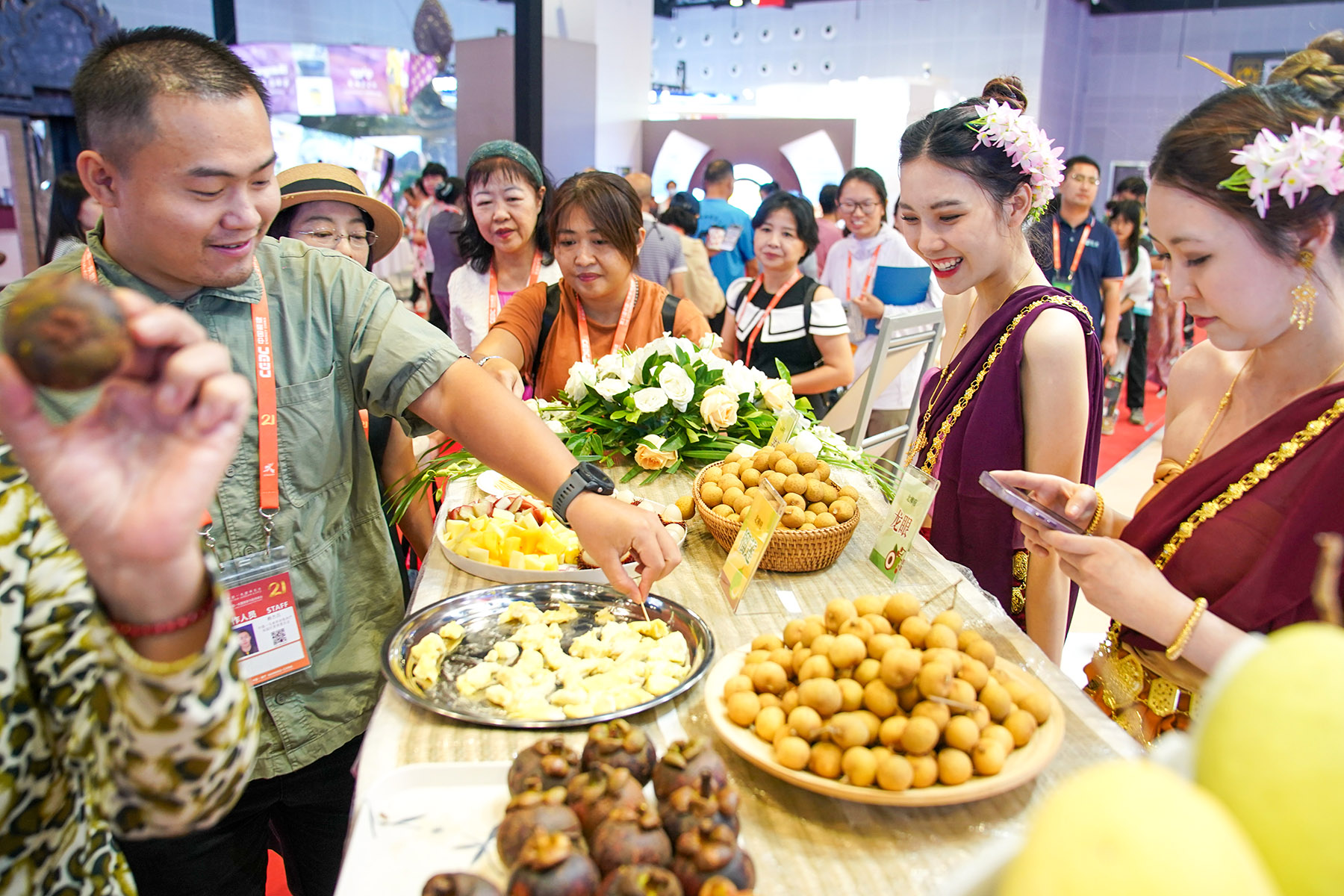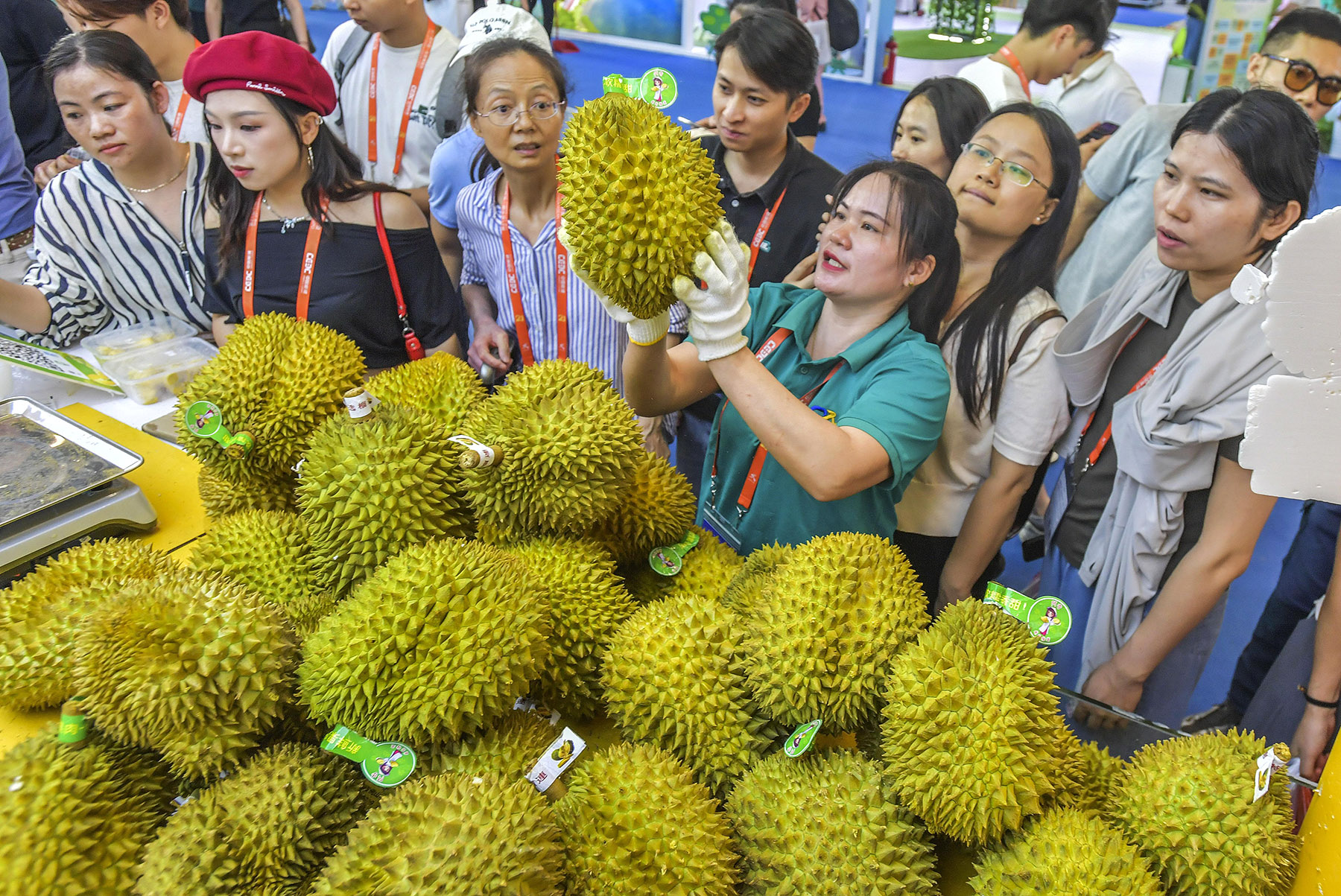Leaders of four countries in region set to bring own governance style as well as build on gains of predecessors

The paradox of change and continuity has marked the year 2024 for the Southeast Asian region. While the new leaders in Indonesia, Thailand, Vietnam and Singapore are expected to bring in their own ideas and governance style during their incumbency, they are also seen to be championing the gains of their predecessors.
Analysts said this applies to their domestic politics and respective foreign policies. The four leaders — like most leaders of the member states of the Association of Southeast Asian Nations — adhere to nonalignment, focus on expanding trade and investments, and balance their relations with major powers as they tread a more challenging geopolitical situation.
"The degree of policy continuity or adjustment by new leadership in four ASEAN members will bear on the region," said Lucio Blanco Pitlo III, research fellow at the Manila-based Asia-Pacific Pathways to Progress Foundation. But Pitlo said greater uncertainty in international affairs and gains made by the previous administration may discourage new leaders from pursuing policies that are too disruptive.
READ MORE: ASEAN set to benefit from China’s stimulus measures, economic growth
James Chin, a professor of Asian Studies at the University of Tasmania in Australia, said ASEAN's new leaders also need to promote the ASEAN spirit which has been challenged in the past few years.
"In recent years, it's been harder and harder for ASEAN to come together, to issue a communique, because some members object," Chin said, alluding to some challenges that ASEAN members are dealing with, including the crisis in Myanmar.

Indonesian President Prabowo Subianto has said that under his administration, Indonesia would continue a 'bebas dan aktif' (independent and active) foreign policy. Prabowo is perceived to have a more active foreign policy compared with his predecessor Joko Widodo.
Aloysius Lele Madja, former Indonesian ambassador to Chile, said Indonesia does not take sides and prioritizes national interest, "especially economic development for the welfare of the Indonesian people".
In his state visit to Beijing in November, Prabowo acknowledged China's support and said that it was "a strategic economic partner of Indonesia, a top investor in Indonesia".
China is Indonesia's largest trading partner and most of Chinese foreign direct investment has gone into building key infrastructure, including the Jakarta-Bandung High-Speed Railway — the first of its kind in ASEAN and a key project under the China-proposed Belt and Road Initiative.
Madja said Prabowo's diplomatic style is "more to the point". He saw Prabowo as maintaining cordial relations with both China and the US, while at the same time breaking new ground by expressing interest to join the BRICS group.
Likewise, Singapore's Prime Minister Lawrence Wong, a member of the fourth generation of the ruling People's Action Party leadership, is expected to continue the party's established policies, including the practice of hedge diplomacy and maintaining a neutral stance in international relations.
Like Indonesia, Singapore is a founding member of ASEAN and upholds the principle of ASEAN centrality — which is about promoting and implementing policies based on regional interest. Wong emphasized this in his inauguration speech on May 15, while saying that Singapore is also hoping for stable US-China relations and will continue engaging both powers.

Mustafa Izzuddin, senior international affairs analyst with policy and business consultancy Solaris Strategies Singapore, said "there is more continuity than change" in Singapore's foreign policy.
Mustafa said Wong is adopting a dual-track approach like his predecessors — bilaterally in terms of Singapore's relations with China under its national interest, and multilaterally in terms of ASEAN's relations with China as Singapore is a staunch multilateralist and proponent of the regional bloc.
In August, former prime minister of Thailand Srettha Thavisin was removed from the position after less than a year in office due to breach of ethics rules by appointing a lawyer with a criminal conviction to his cabinet. Two days after the removal of Srettha, ruling Pheu Thai Party leader Paetongtarn Shinawatra was elected as the 31st prime minister.
Despite these initial challenges, Paetongtarn's administration is expected to provide stability.
Kriengsak Chareonwongsak, president of the Institute of Future Studies for Development in Bangkok, said it helps that Paetongtarn belongs to the same ruling party, ensuring continuity in policies and composition of the cabinet.
In terms of foreign policy, Kriengsak said he believes that Thailand, under Paetongtarn, "would like to be a good neighbor to all countries", to maintain ASEAN centrality and "to continue to work closely with China because we are very near, in terms of proximity, as well as our historical links being very strong".
Thai Foreign Minister Maris Sangiampongsa said that the ministry will continue tangible actions and build on the foundations laid by the previous administration. In December alone, Thailand hosted two regional dialogues: an informal consultation, comprising Bangladesh, China, India, Laos, Myanmar and Thailand, to enhance cooperation in addressing shared concerns such as border security and transnational crimes; and an informal consultation on the implementation of the five-point consensus on the situation in Myanmar.

Thitinan Pongsudhirak, a professor and senior fellow of the Institute of Security and International Studies at Chulalongkorn University's Faculty of Political Science, said Paetongtarn's latest diplomatic forays should be supported because Thailand has become a regional laggard with its international standing at an all-time low.
Narongsak Putthapornmongkol, president of the Thai-Chinese Chamber of Commerce, said Thailand and China enjoy a long history of friendship and trade partnership, adding that Thai businesses have always treasured the trade bonds with China.
Speaking at a forum on mutual learning between the civilizations of Thailand and China in December, Bhokin Bhalakula, former speaker of the Thai Parliament and president of the Thai-Chinese Culture and Economy Association, said that Thailand and China have a deep cultural bond, which is reflected on every detail of people's life, from cuisine to traditional holidays.
ALSO READ: China-ASEAN air routes see surge in passenger trips in first 10 months
"Given that our historical long friendship has lasted for more than 2,000 years, deeper cooperation in wider fields, such as science and technology, will see a boom in the future," he said.
Vietnam's new leadership has maintained close exchanges with China with high-level visits as well.
Chinese President Xi Jinping sent a congratulatory message on Oct 22 to Luong Cuong on the latter's assuming office as Vietnamese president, and called on both countries to strive for more achievements from their comprehensive strategic cooperation to contribute to their modernization drive.
The strengthening partnership between China and Vietnam stands out as a stabilizing force in Asia, vital for regional peace, sustainable economic growth and geopolitical stability, Philippine columnist Wilson Lee Flores wrote.
Leonardus Jegho is a freelance journalist for China Daily.
Contact the writers at prime@chinadailyapac.com


